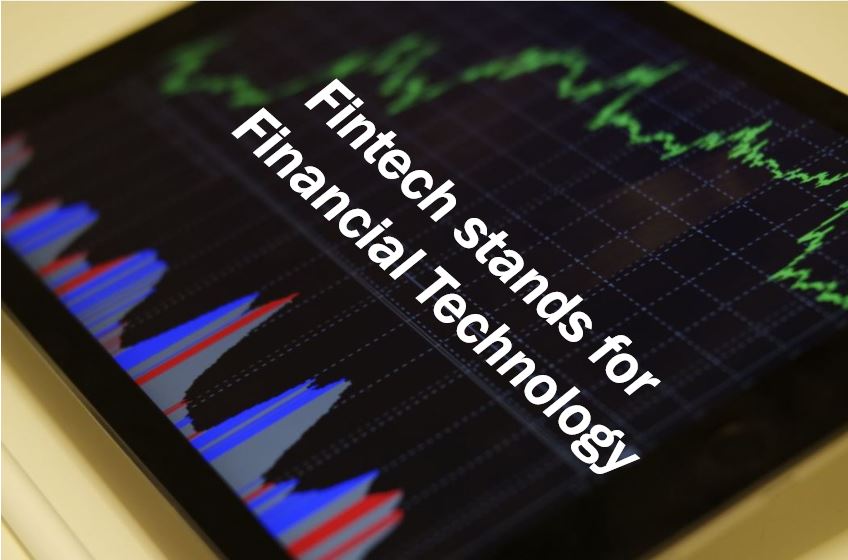 Fintech has become a buzzword in the financial world over the past few years. Simply defined, it is tech innovation that seeks to improve and automate the delivery and use of financial services. The power of technology to transform how information spreads has made its way into finance bigtime. Goldman Sachs estimates that the global Fintech industry is worth an astonishing $4.7 trillion globally.
Fintech has become a buzzword in the financial world over the past few years. Simply defined, it is tech innovation that seeks to improve and automate the delivery and use of financial services. The power of technology to transform how information spreads has made its way into finance bigtime. Goldman Sachs estimates that the global Fintech industry is worth an astonishing $4.7 trillion globally.
As such, the approximately 12,000 Fintech startups across the world have made buying and selling things simpler, faster, and easier.
Moreover, the Fintech industry is broad to include technology in fields like Insurance. This is what is called Insurtech. For an industry that is less than two decades old, the progress and versatility it shows so far is remarkable. Fintechs are now a popular investment domain for venture capitalists and mainstream institutions.
In the past year alone, investors have poured tens of billions of dollars into the sector with China leading investments. This popularity is because Fintech is causing disruption in the very nature of financial services. Therefore, even large banks that seemed etched in stone for ages are now scrambling for a piece of this pie.
Why Fintech Is Lucrative
Technology has generally had an exponential impact on the world of finance. Even the rather simple Automatic Teller Machines (ATM) have had a seismic impact on the ease of banking worldwide.
Fintech adds the efficiency of telecommunication and even Artificial Intelligence to the financial sector. At the moment, Fintech startups are getting larger. In fact, mergers and acquisitions are the order of the day because larger Fintech startups acquire promising ones to diversify operations even further.
What is the genius of Fintech? Fintech simply brings efficiency to finance by leveraging technology to cut the human element or level of human capital necessary to perform select functions. Tech comes with greater processing speeds and scalability in operations.
Let’s take peer to peer (P2P) lending for example. P2P Fintechs use artificial Intelligence to instantaneously calculate the credit-worthiness of customers. Without Fintech, a human being would have to check the credit score of the customer manually. Loan processing can take days and is more expensive. Fintech in such a sector makes it efficient, meaning that credit issuers lower the cost of issuing credit for themselves and cost of customers accessing loans.
The unbanked population globally is a goldmine for Fintechs. With billions lacking access to banking or are underbanked, technology can be the bridge to access these markets. Besides being a viable investment, Fintechs play the utilitarian role of promoting financial inclusion.
 Fintech Applications Examples
Fintech Applications Examples
Fintech is spreading its blueprint in all kinds of sectors. They include:
- Crowdfunding Platforms – Crowdfunding companies that leverage Fintech are now very prominent. An example of this is GoFundMe crowdfunding platform which is a feature of a number of viral fundraisers online.
- Blockchain platforms– Cryptocurrency platforms are a great example of Fintech application. Ripple, a rapid transaction platform, is a prominent example.
- Mobile payment Fintech channels.
- Insurtech– Insurtech uses AI to calculate risk and premiums of respective cover applicants. This eliminates the risk classes of traditional insurance hence each insured person or entity pays a premium that reflects their risk to the insurer. This eliminates the problem of overcharging premiums in the risk classes.
- Robo-advisors in investment– An example of Fintech Robo-advisor is Wealthfront.
The range of Fintech applications is unprecedented. Varied as they are, they provide new twists on financial concepts and reduce the cost of finance movement.
Moreover, Fintech companies generally allow customers to have greater influence on their financial outcomes. This is why Fintech is big business. Customers across the world are appreciating the efficiency of Fintech hence the exponential rise in the lucrativeness of this industry.
The Future of Fintech
Already, a country like China has over 80% Fintech adoptability. This is because large corporations like Alibaba have Fintech payment channels. Mobile payments using services like Alipay has made Fintech greatly adopted in China.
This is not an isolated development as most countries have impressive Fintech adoption rates. Fintech in certain aspects is only getting started. It is not prudent to place a ceiling on such a dynamic sector.
In 2019, and the future by extension, this industry will continue to mature even further. Customers will be looking for services that are easy to use, lower transaction costs and have incredible versatility. This sector has all these features. Moving forward, further mergers will happen. This is because startups can merge where there is a convergence of purposes and a complementary element in operations.
Fintech is already and will continue to be the leading disruptor in the financial sector. People’s lives across the world will be markedly different In the near future as this industry continues to open new horizons. Accordingly, it will continue to be a darling to investors for the foreseeable future.

